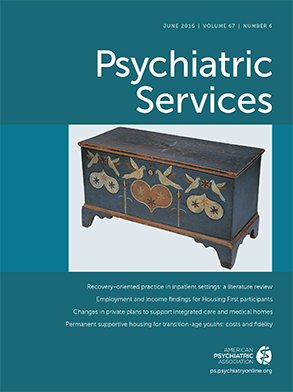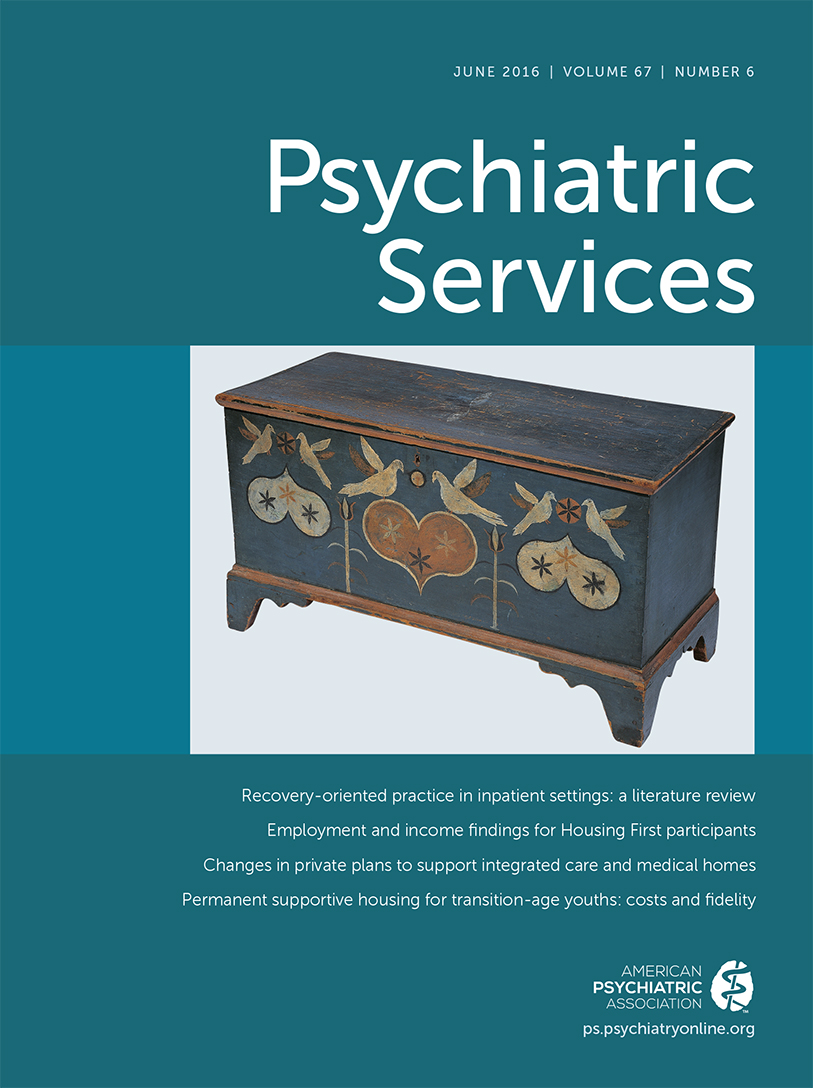Programs for treating specialized or “niche” behavioral health and general medical disorders are a growing sector of the American health care industry. Because most of these programs are for profit and many utilize a clinician ownership model, their structure makes them susceptible to practices that maximize profits rather than prioritize evidence-based practices and optimal treatment outcomes.
This Open Forum highlights the assertive marketing practices of many for-profit residential treatment centers for eating disorders as an example of business practices that may influence care. We urge clinicians to consider how industry marketing strategies can affect their referral patterns to niche behavioral health treatment programs. In addition, we call for reporting policies to increase transparency about financial relationships between programs and referring clinicians and to diminish potential conflicts of interest in the rapidly evolving behavioral health care marketplace. Two authors (EA, ASG) currently direct and one author (MDM) previously directed eating disorder treatment programs at academic medical centers that compete for the same patient population as for-profit facilities. All comments and recommendations we make apply to both academic and for-profit programs.
History and Current Context
In the 1990s, when managed care dramatically shortened hospital stays for eating disorders (
1), for-profit residential programs began to proliferate to meet increased demand for specialty treatment for eating disorders. Often situated in attractive spa-like facilities in remote locations, these residential centers provide 24-hour supervision at a lower daily cost than traditional academic behavioral specialty units for the treatment of eating disorders. Residential programs aim to help medically stable patients with eating disorders interrupt abnormal eating and exercise behaviors, including dieting, binge eating, and purging.
Most residential treatment programs are not affiliated with academic medical institutions. Instead, they often belong to a network of residential and intensive outpatient facilities in various locations owned by a larger behavioral health organization. Many of these for-profit health care organizations cultivate relationships with community clinicians who treat eating disorders by utilizing marketing strategies similar to those used until recently by the pharmaceutical industry. These strategies include small gifts, travel, and meal payments. The effect of these clinician inducements, which are aimed at building a program’s patient referral base, may not be fully recognized by the professionals they target. Furthermore, the financial relationships that develop between referring clinicians and treatment programs are not disclosed to patients and their families when they receive a recommendation from their treatment provider for a specific program.
The first residential eating disorder program opened in 1985. By 2006, there were 22 such programs (
2), and today more than 75 are operating. Programs vary substantially in quality, and peer-reviewed evaluations of program efficacy are scant. Although facility standards are being established for residential treatment (
3), there is still no industry consensus about either the care components required to accomplish treatment goals or benchmarks for assessing quality of care. Most programs provide some evidence-based treatments, such as cognitive-behavioral therapy, but many also offer treatments that lack empirical support but are attractive to patients, such as equine therapy, dance, or drama. Furthermore, programs commonly fail to distinguish evidence-based interventions from adjunctive activities that have no documented utility.
When programs include outcome information on their Web sites and in promotional materials, they rarely present systematically collected objective data, such as weight change data for patients with anorexia nervosa, and the peer-reviewed literature includes very little from these centers. Most published treatment descriptions, models of care, and weight gain data are from hospital programs affiliated with academic centers (
4–
7). Such outcome data are important for two reasons. First, weight restoration is the single strongest predictor of recovery in the treatment of anorexia nervosa (
8), and published treatment guidelines, such as those from the National Institute for Health and Care Excellence (
9), emphasize reestablishment of adequate body weight. Second, because the core symptoms of anorexia nervosa include fear of gaining weight or becoming fat, the necessary weight gain is very anxiety provoking to patients with the disorder, sometimes leading them to prefer approaches that deemphasize the need for behavioral change.
Marketing Strategies and Lack of Oversight
In the United States, residential treatment programs have recently captured investor attention and have become a popular vehicle for private equity firms. Investors believe that high clinical demand and the availability of third-party payments make behavioral health treatment an area ripe for growth (
10). They are alert to the fact that many previously uninsured individuals now have mental health benefits from commercial insurance under both the Mental Health Parity and Addiction Equity Act and the Affordable Care Act. This group includes young adults, a population at high risk of developing eating disorders. In addition, several successful lawsuits against insurance companies for not providing comprehensive care coverage of eating disorders have forced an expansion of behavioral health coverage, specifically including residential treatment as a covered benefit under many insurance policies (
11,
12). Internet searches for information about the behavioral health industry produce information about recent acquisition and rapid expansion of many residential treatment programs. This growth has been accompanied by an escalation in well-financed marketing efforts directed to patients, their families, and professional referral sources.
Marketing strategies being used to cultivate patient referrals from clinicians include sponsorship and exhibits at professional eating disorders conferences, where behavioral health companies dispense small gifts, such as promotional pens, bags, water bottles, and lip balm, and provide free networking dinners. In addition, treatment programs frequently send outreach staff to visit clinicians in their offices, providing lunch or offering restaurant dinners to discuss program details and the ease of the referral process. Some programs advertise free trips for tours of their facilities that include flights, accommodations, and recreational activities. Many companies sponsor their own educational programs, sometimes using for this purpose separate but affiliated not-for-profit foundations. These conferences may recruit well-known academic specialists to speak and provide low- or no-cost continuing education credits, attracting local clinicians—including physicians, psychologists, social workers, licensed professional counselors, and dietitians—who treat eating disorder patients in their outpatient practices.
Academic medical centers are not immune to market forces and competition for patients, and many advertise the excellence of the care they provide. In general, however, program leadership and staff in academic medicine do not benefit from program profits as directly, and these programs are much less likely in marketing materials to overemphasize the likelihood of positive outcomes.
Many for-profit behavioral health programs have borrowed the playbook from the pharmaceutical industry. But drug company marketing has undergone significant review and revision over the past several years. Federal and state governments, academic medical centers, and professional medical societies are now alert to the perceived and real conflict of interest inherent in financial relationships between the pharmaceutical industry and physicians, as well as the influence of the drug industry’s marketing strategies on physician prescribing patterns (
13,
14).
Academic medical centers have strengthened financial disclosure policies and decreased pharmaceutical sales representatives’ access to clinicians and trainees. Professional conferences have limited many of the advertising strategies by pharmaceutical companies. Enacted in 2010, the Physician Payment Sunshine Act requires drug and device companies to report all payments over $10 and in-kind gifts to physicians (
15).
In contrast, the behavioral health industry has no reporting requirements and can pursue marketing strategies for residential treatment programs without oversight. Referring clinicians have an obligation to recommend a treatment program based on the best interest of the patient. However, many behavioral health clinicians may not recognize how aggressive marketing strategies employed by treatment programs can influence both referral patterns and the perception of care provided by the treatment center. The need for transparency in the behavioral health industry is just as acute as in the pharmaceutical industry. Disclosure policies should be developed so that information about financial relationships, such as those established by offering free meals, educational activities, and travel, are available to colleagues, patients, and families.

